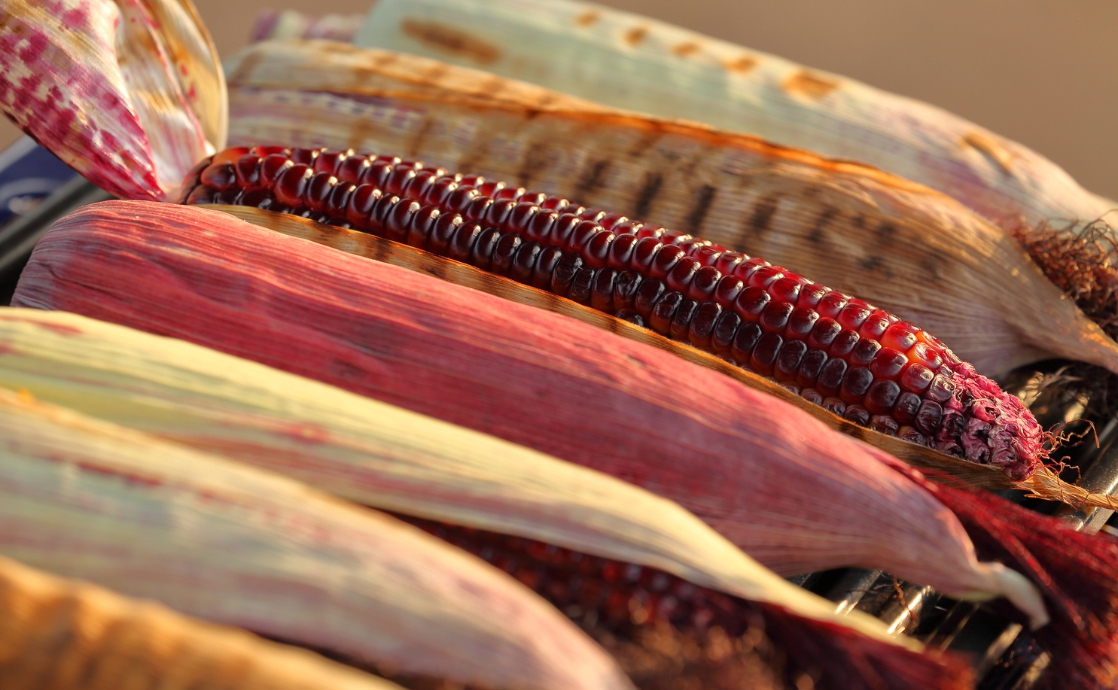The views expressed in our content reflect individual perspectives and do not represent the authoritative views of the Baha'i Faith.
In many ways, the advent of a spiritual messenger, to any one culture or all cultures, reveals a single divine purpose: to teach us to see reality in a new way, a different way, and a more profound way.
The Baha’i teachings say that the true mission of all the holy messengers is to assist humanity to look beyond the literal and physical – to transcend the material and begin our journey toward the spiritual realities. In a tablet on this subject, Baha’u’llah wrote:
Meditate then upon the utterance of one of the Prophets as He intimated to the souls of men, through veiled allusions and hidden symbols, the glad-tidings of the One Who was to come after Him, that thou mayest know of a certainty that their words are inscrutable to all save those who are endued with an understanding heart. He saith: “His eyes were as a flame of fire”, and “brass-like were His feet”, and “out of His mouth goeth a two-edged sword”. How could these words be literally interpreted? Were anyone to appear with all these signs, he would assuredly not be human. And how could any soul seek his company? Nay, should he appear in one city, even the inhabitants of the next would flee from him, nor would any soul dare approach him! Yet, shouldst thou reflect upon these statements, thou wouldst find them to be of such surpassing eloquence and clarity as to mark the loftiest heights of utterance and the epitome of wisdom. Methinks it is from them that the suns of eloquence have appeared and the stars of clarity have dawned forth and shone resplendent.
RELATED: Iyatiku – Corn Woman – Acoma Pueblo Messenger of God
When we start to see beyond the literal, physical existence, we reach for wisdom, insight, and clarity. In a talk he gave to a Bible class in New York in 1912, Abdu’l-Baha said:
The divine Words are not to be taken according to their outer sense. They are symbolical and contain realities of spiritual meaning. For instance, in the book of Solomon’s songs you will read about the bride and bridegroom. It is evident that the physical bride and bridegroom are not intended. Obviously, these are symbols conveying a hidden and inner significance. In the same way the Revelations of St. John are not to be taken literally, but spiritually. These are the mysteries of God. It is not the reading of the words that profits you; it is the understanding of their meanings. Therefore, pray God that you may be enabled to comprehend the mysteries of the divine Testaments.
In our ongoing exploration of the Indigenous messengers of God through this series of articles, we’ve realized in multiple new ways that all of those messengers spoke to humanity in simple and yet symbolic terms, whose meanings we can meditate on and attempt to unlock.
RELATED: Mother Corn: Personification or Prophet?
Q: Kevin, in your autobiography, Arising, you wrote about corn and its deeper significance in that symbolic way:
I learned about my peers’ cultures and about the history of their tribes for the first time — not in our classes but rather through my general nosiness and many questions. I found new commonalities between us. For instance, my peers from the Seminole reservation practiced an annual ceremony of renewal, the green corn dance, which was similar to ceremonies done by my Choctaw friends. Even in the Northern Plains, corn had great symbolic significance as the harvested result of the seed of faith.
Kevin, I’ve found so many spiritual insights in your autobiography, Arising. I commend it to our esteemed readers for its wealth and depth. Would you please choose an excerpt that illustrates the best way to recognize the wealth of symbolism, sacred values, and cultural heritages in Indigenous traditions?
A: Thanks, Chris – sure, I’ll be glad to. Although I feel kind of funny quoting from my own book, I’m happy to oblige your request. So let me quote a passage that you — and our esteemed readers — might appreciate:
The spiritual world, from an Indigenous viewpoint, encompasses all of creation — the visible and invisible; the past, present, and future. This world, this earth, is only a shadow of the next world and worlds beyond. …
At an airport, most travelers remain totally anonymous according to social protocol of the dominant society, but not to the Tlingit. They instead made human interactions sacred and mastered the art of finding beauty in the ordinary.
In many respects, Indigenous cultures inspire mindfulness and presence through art and ceremony. I have heard people remark that the Lakota have a song for everything. In many respects, Indigenous cultures, such as the Tlingit and Lakota, can assist us to practice “the power of NOW.” Despite facing colonization and oppression, every second is a miracle, and every sunrise and sunset, every sign of life, every gift, is worthy of singing and celebration. Even the most mundane aspects of life are cause for regard.

















Comments
Sign in or create an account
Continue with Googleor